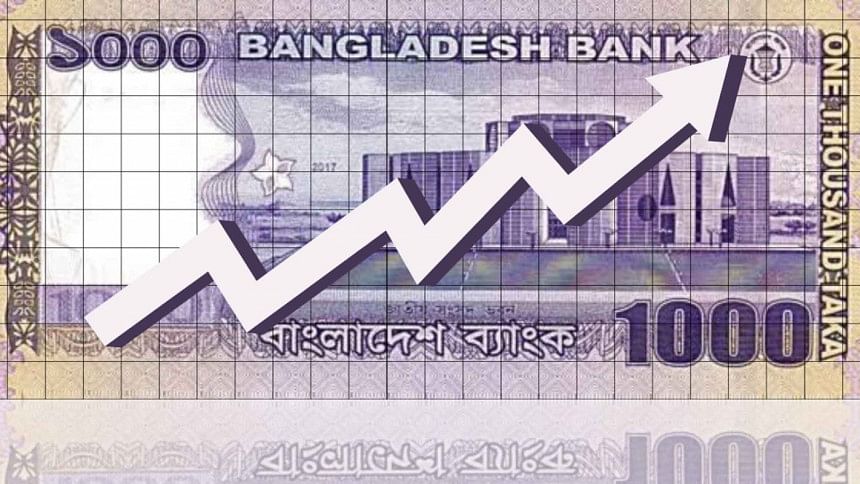Issues that should be in focus in budget 2022-23

The finance minister of Bangladesh is scheduled to place the national budget for 2022-23 fiscal year at parliament on June 9. This budget is probably the most challenging in the recent history of economic policymaking in Bangladesh. The world has not yet recovered from the pandemic fallout. On top of that is the Russia-Ukraine war. Due to multidimensional challenges, international organisations have downgraded their economic growth projections for 2022. For example, the International Monetary Fund (IMF) moderated its estimation for global economic growth to 3.6 percent for 2022 against its earlier projection of 6.1 percent. Prior to the Russia-Ukraine war, as the global economy was on the recovery path, demand for goods and services started to increase, but the supply could not cope up with it. The pandemic disrupted the supply system globally. The Ukraine war worsened it. In April 2022, fuel prices went up by almost 70 percent compared to April 2021. Prices of essentials such as rice, wheat, maize, edible oil, lentils, and sugar also skyrocketed. Two important sources of these products have traditionally been Russia and Ukraine.
In such global and domestic contexts, the FY2022-23 budget in Bangladesh will need to have measures addressing the immediate challenges as well as those tackling the medium-term issues. The global economic downturn and inflationary pressure will stay for some time as there is no sign of cessation in the war. Therefore, the government needs to make all-out efforts to face the crisis. In making its efforts, it must ensure coordination between fiscal and monetary policy measures.
First, to give some respite to common consumers, there should be removal of various taxes, such as advance income tax, advance tax, and regulatory duty on all imported essential items. Besides, social protection in terms of direct cash support to the poor should be scaled up. Sales of essential items in the open market at reduced prices should be made available in abundance to meet the demand of the poor and low-income groups. Though it is a burden for the government, subsidies for energy and agriculture should be continued, given the criticality of the situation. Moreover, in the case of agriculture, fair prices to farmers should be ensured so that they are encouraged to produce more to have more supplies in the market. Market monitoring mechanisms by the government should be strengthened, and the market distorting players who hoard and create artificial crises should be punished. The government should also immediately make agreements with global suppliers to import essential items in the coming days to avoid future crises in the domestic market.
Second, increased and affordable supply in the market will need finance. So, the policymakers will have to create adequate fiscal space through domestic resource mobilisation. Clearly, reduction and elimination of various taxes on essential items will reduce import tax. One way to offset that loss is to tax luxury items more. The government has indicated it will do so in the upcoming budget. However, while this could be an immediate way to collect more revenues in order to accommodate the increased financial need, the goal should be to increase revenue through increased income tax collection. This depends on the reform of the revenue collection system itself. An independent and fully automated tax system backed by adequate and efficient human resources is much needed now.
Third, in the case of the external sector, the import cost pressure and relatively lower export income have led to a trade deficit of about USD 27.5 billion during July 2021-April 2022. Additionally, negative growth of remittances has resulted in a current account deficit equivalent to USD 15.3 billion in the same period. The government has recently announced some measures, such as cutting down imports of non-essential items and freezing foreign travels of government officials. This will help reduce the pressure on our foreign exchange reserves. Bangladeshi exports have been facing competition since many countries already devalued their domestic currencies against the US dollar. The recent decision of the central bank in allowing foreign currency market to take its own course is a positive move. To reduce the current account deficit, the government will have to put more efforts towards attracting remittances through the official channel. At the same time, rationalisation of the incentive for remitters is needed, and gradually it should be withdrawn so that the amount paid for incentives can be utilised for other purposes.
Fourth, while trying to put a strain on the expenditure, the government must be careful so that its spending does not fall drastically, domestic demand does not shrink, and investment is not affected. High inflation with weak growth can lead to stagflation, which many advanced countries are experiencing now. In some of the advanced countries, inflation has risen to a record level while growth has contracted. Bangladesh must increase spending on healthcare, education and social protection. Due to low revenue mobilisation effort and competing priorities, particularly for physical infrastructure, the social sector has been perennially ignored. Hence, these sectors receive insignificant allocation in the budget as a percentage of GDP. However, if economic growth is not accompanied by commensurate resource allocation for the social sector, the sustainability of growth will be under threat since poor allocation of public resources in these sectors will create further inequality in society.
Finally, though the national budget has limited scope for addressing medium- and long-term issues, it can make decisions on both resource allocation and generation for each financial year. Budget may be incremental in nature, but it can make choices and decisions within the broader national policy frameworks, which are formulated with medium- to long-term objectives. The annual budget is, thus, expected to devise not only short-term fiscal measures, but to also continue to allocate resources for medium-term objectives.
Dr Fahmida Khatun is executive director at the Centre for Policy Dialogue (CPD). Views expressed in this article are the author's own.

 For all latest news, follow The Daily Star's Google News channel.
For all latest news, follow The Daily Star's Google News channel. 









Comments